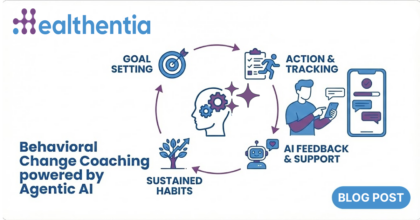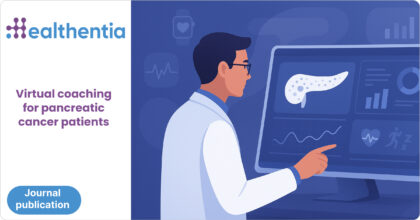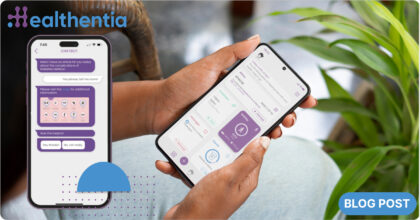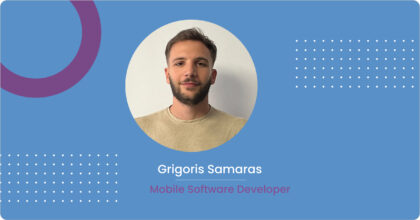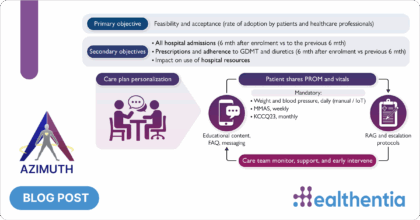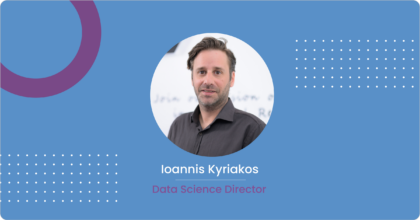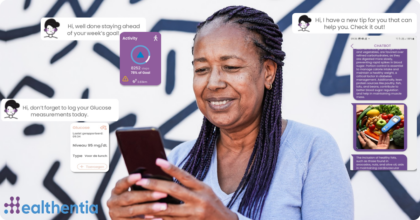
Welcome to our blog post series “Healthentia dose” with articles and interesting reads we come across from the fast-changing industry of #ClinicalResearch and #DigitalHealth. What we read, shapes our thinking and strategy, triggers our goal settings, and even pivots our businesses.
This is an insightful journey, and we want you to be part of it.
In this Healthentia dose, we look at collaboration, gender bias and how to positively change behavior.
When your competitor becomes your collaborator
How many times have you done your marketing analysis or went mystery shopping to study well your competitor? Challenging times like these ones need a change of approach. Competition for new products or features won’t just do, to solve the world’s biggest health issues, collaboration is required. It is inspiring to hear on this podcast, giants in the most competitive arena, the Life Sciences, to sit down at the same table and try to solve problems, together. We should all look at similar opportunities. No one can do a big change alone.
Scissorhands Ladies
Talking about collaboration in problem solving, we also saw an amazing duo, when the prestigious Nobel prize of Chemistry was split between two ladies scientists. Emmanuelle Charpentier when she published her first findings, she then initiated the collaboration with Jennifer Doudna, to advance her research discoveries. Together, they were able to succeed in recreating the bacteria’s genetic scissors and simplifying them for a larger scale use. This tool has now contributed to many important discoveries in medicine and clinical trials of new cancer therapies are underway, and the dream of being able to cure inherited diseases is about to come true. “These genetic scissors have taken the life sciences into a new epoch and, in many ways, are bringing the greatest benefit to humankind.” Kudos to these amazing ladies in research.
Creating a Gender partnership not a struggle of dominance
Talking about strong partnerships, this is a great one! While a discouraging proportion of our population believes that Covid-19 is fake so that Bill Gates can put a chip on you and me, I had the chance to read the “Moment of Lift” by Melinda Gates. This book is about the work of the Bill and Melinda Gates Foundation, to empower women around the globe, from vaccines to family planning and projects to stop child marriages or education opportunities to girls. I found the storytelling in this book heartbreaking but powerful. It highlights the strength and will it takes from a few, to open up, the support and collaboration are enough to make a change. You can’t help to feel privileged of being born on this side of the planet when you hear of the struggles of women and girls to cope, care for their children, or get educated and respected.
I was convinced in this book about the importance of listening and opening up. I picked up some key points, for our journey with Healthentia. Need to listen to patients!
You can’t meet a need, you don’t know about!!
Don’t can’t judge from the outside, you should better discuss from the inside. Change can come only through empathy
Listening is about opening up to others and it is empowering for the ones you listen
and saved the last two, to share with my girlfriends 😊 :
Every man who is a bully is scared of a group of women & a collaboration group’s intelligence is strongly correlated to gender diversity than IQ, so GO AHEAD, JOIN IN.
What does actually get people to change behavior?
We learned that change can come when you show empathy, and no matter how many times I hear or read about these behavioral change strategies it is never enough.
How many times have we tried to scare our kids of the impact of a bad behavior? “If you don’t wash your teeth they will fall off!” These threats are commonly used to visualize a future impact of a bad behavior but these freights have actually very low impact on behavior change. In this TEDx video, Tali Sharot explains scientifically why by using these three positive strategies your results will be much better. They are based on principles that drive the human mind and behavior:
Social incentives, “We are social creatures we care what other people are doing and we want to do it better.”
Immediate rewards, “We value instant gratification because the future is far. So a positive behavior is associated with a reward can become a lifestyle.”
Progress monitoring, “Highlighting the progress and not the decline.”
I think looking at how we are moving towards the new paradigm of medicine: predictive, preventive, personalized, and participatory (P4) medicine, we need to build coaching techniques that will incorporate principles that drive human behavior, as we know that lifestyle and health is connected in a two-way equation and we believe that digital biomarkers will be the driving forces to make decisions and orchestrate Digital Therapeutic DTx content.
Gender Bias in Adverse events
With the rise of real-world clinical data, like lifestyle and clinical outcomes collection, we can start seeing gender differences in disease expression, severity, and even adverse effects. Women may be better off when it comes to Covid-19, based on this latest study for example are more prone to adverse drug effects due to a wrong dosage. As a proud Columbian, I always follow the great research taking place in this plot of Manhattan land. In this article, @nicktatonetti associate professor @ColumbiaDBMI, explains how Adverse Events are sex-specific. New data mining techniques are uncovering previously hidden adverse drug effects that impact women more than men. These new methods are based on great data collaboration initiatives, that hold the key to unlocking these insights due to need of large datasets.
Visualizing aerosols
Maybe too small to see but can be lethal. I hope most people have seen this spatial visualization of aerosol spreading in different scenarios from El Pais that was all over Twitter. I will however include it as I think it is a) a piece of art, b) most crucial for all to understand the importance of good ventilation regardless of the cold and our positioning in a public space. Even though most of us are restrained at home these days, on the occasion, you need to visit a public space or use public transport, do keep these in mind. Patient 0s are all around us, could be one next to you. 😳
We love Science, we listen to it. #Stay safe, until next time.

Chief Product Officer, Innovation Sprint.
